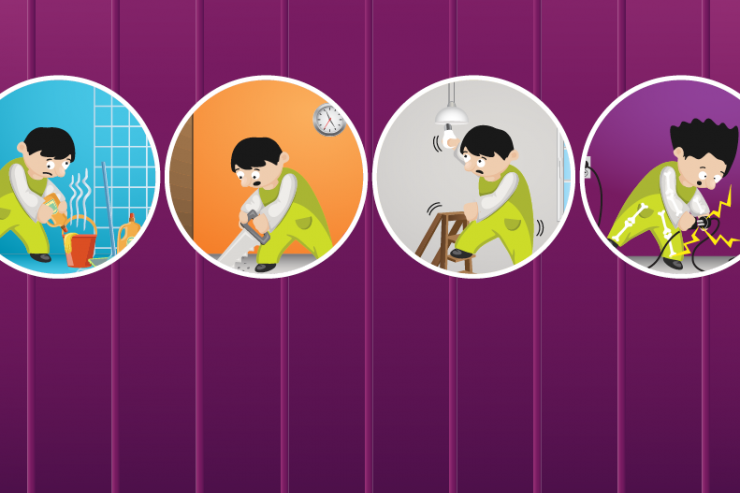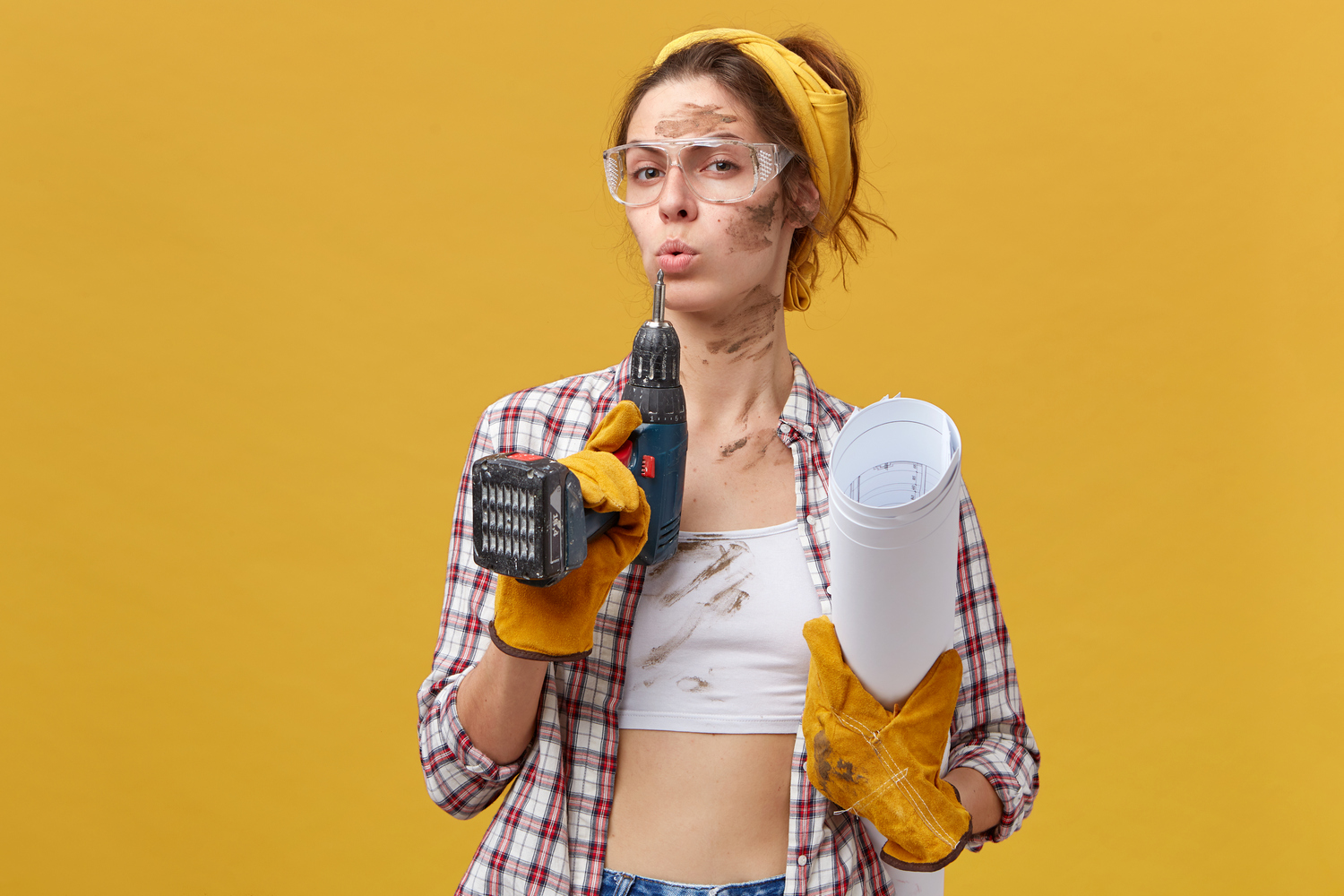More About Safety Tips for DIY and Home Remodeling Projects

5 Tips for Safe In-Home Repairs During the Next Wave of - An Overview

Not just can a loose wire break an electrical circuit, it can also injure you if you touch it while it is energized or hot. Loose wires are caused by vibration or other elements. Most important, think prior to you act. Electrical energy follows rigorous laws. You should follow the very same laws in order to fix electrical systems safely.
Home-improvement projects often require dangerous practices. I keep in mind nailing siding onto my house from the top of a 30-foot scaffold. That one got my blood flowing. Then there was the Environment for Humankind house structure project where we tight-rope-walked across the tops of 2-by-4 stud-framed walls while carrying roof trusses.
A Biased View of 10 Safety Tips for Home Improvement Projects - Sharp
If you're working beneath building and construction, get one! Home, Tips, Accidents can occur. You require to be particularly careful when you're working at heights; with power tools or sharp blades; with heavy, uncomfortable, or harmful materials; or with electricity or natural gas. Believe about SmartLiving : It just isn't worth it to do your own house improvements if you run a high risk of seriously hurting yourself.

Summer Safety Series: DIY Home Improvement Tips
Here are a couple of really crucial practices and rules: For example, if you're unpleasant on the roofing because it is expensive or steep, leave the roof repairs to an expert. The exact same holds true with tasks that require specialized tools. to avoid creating your own hazards. Don't allow power cords to tangle.

Top 10 Home Renovation Safety Tips - Scarborough Disposal
The Greatest Guide To DIY – 5 Safety Tips for Home Repairs
Pull all nails from old lumber. For more about child safety, see Childproofing Your Home. To put it simply, do not work in your flip-flops and shorts. Strong clothing, work boots, and gloves will protect you. And use safety glasses whenever you use power tools, hammers, or other striking or cutting tools.

Safety Tips for the Dedicated DIYer - StaySafe.org
When utilizing power tools, make sure to follow all precautions mentioned in the manual. Always disconnect the tool before servicing or changing it and when you're ended up with the task at hand. Make sure the tool works correctly and is equipped with correct security guards. Dull tools need additional force and can bind, making the tools harmful.
